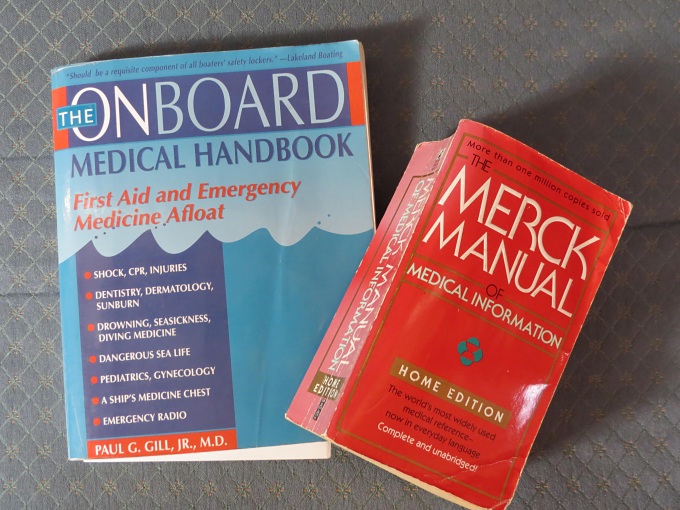FAQ - Medical Care
/David's been feeling under the weather the last couple of days. A touch of the flu, perhaps? Nothing serious, he's just not feeling 100%. This brings up a very frequently asked question – what do you do about medical care while you're sailing around the world? First, we do not have medical insurance and haven't had since we moved aboard. There are three primary reasons for this, just in case you're interested. First, of course, the cost of monthly insurance premiums even for catastrophic coverage is beyond what we can reasonably afford. Quite honestly, the cost of any medical care we've needed thus far has been significantly less than any insurance policy we could get. Second, Marcie was not insurable until recently (breast cancer in 1997). And third, US health insurance policies do not usually cover health care issues out of country. That said, how do we handle routine healthcare and emergencies?
Routine healthcare is easy. We have routine physicals every few years. We maintain all of our own health records, lab reports and physician reports. Marcie has had mammograms in several different countries and we have all the x-rays (now digital) aboard to prove it. Dental appointments (every six months) are part of our routine and our budget. Eye exams happen every two years or whenever we feel the need for new glasses (or lose a pair overboard!). We've had colonoscopies in Cape Town, mammos in Chile and skin checks in Venezuela. Prevention and early detection are part of our insurance program.
We do belong to DAN (Divers Alert Network) which provides for emergency transport to the nearest medical facility as needed including air ambulance as long as you're more than 50 miles (80km) away from home. Accidents or illness do not need to be diving related. The membership is minimal and friends who have had medical emergencies found DAN's assistance and benefits to be excellent.
Health care is a comparative bargain in many places. Most countries we visited in South America, for instance, offered excellent private healthcare if you ferreted out the right facility and the right physician. David had major surgery and hospitalization in Chile. Marcie had an MRI, cortisone shots and PT in Ecuador for a back problem. All costs were a small fraction of what the same care would have cost in the USA...or Australia for that matter.
So what do we do aboard? We carry a good medical kit which we try to update regularly. Most local physicians will write us prescriptions for what we need once they know our situation and, in fact, will make suggestions of new products available or drugs that make sense to add because of the area in which we're traveling. In Colombia, for instance, the local physician suggested yellow fever shots. In Vanuatu, we were both given malaria kits for testing and treatment in case we needed them. We've both taken CPR classes that admittedly could be refreshed. Seven Seas Cruising Association (SSCA) to which we belong offered several “medicine at sea” classes which we took during one of their gams. They probably offer them as part of their virtual Seven Seas University, now, which would allow you to take them from anywhere in the world.
We carry two books aboard that we use as references: Merck's Manual of Medical Information

Staying healthy is a good part of medical care. Trying to eat properly, exercise and stay fit is key in maintaining our health. Sometimes easier said than done, but being aware is the first step. Being prudent is another key element to staying healthy. Regular check-ups and reasonable follow-up when something doesn't seem right make sense when medical care is more than just a phone call away.
In our nearly 13 years aboard, we have not had any major emergencies to handle other than David's surgery and Marcie's back problem. We were close enough to shore for both of these to get medical help in a reasonable period of time. Other bruises, cuts and infections have been handled aboard with advice from fellow cruising physicians when necessary and the contents of our on-board medical kit.
If you have questions that you'd like to have answered about living on a sailboat or traveling from place to place, leave a comment or send an email? Thanks to David V. for suggesting this post topic.
| Days and Ways to Celebrate |
| A daily list of mostly obscure holidays and fun ways to celebrate them. |
| National Almond Day |
| Yum, my favorite nut and they're healthy for you, too. Eat almonds today! |



